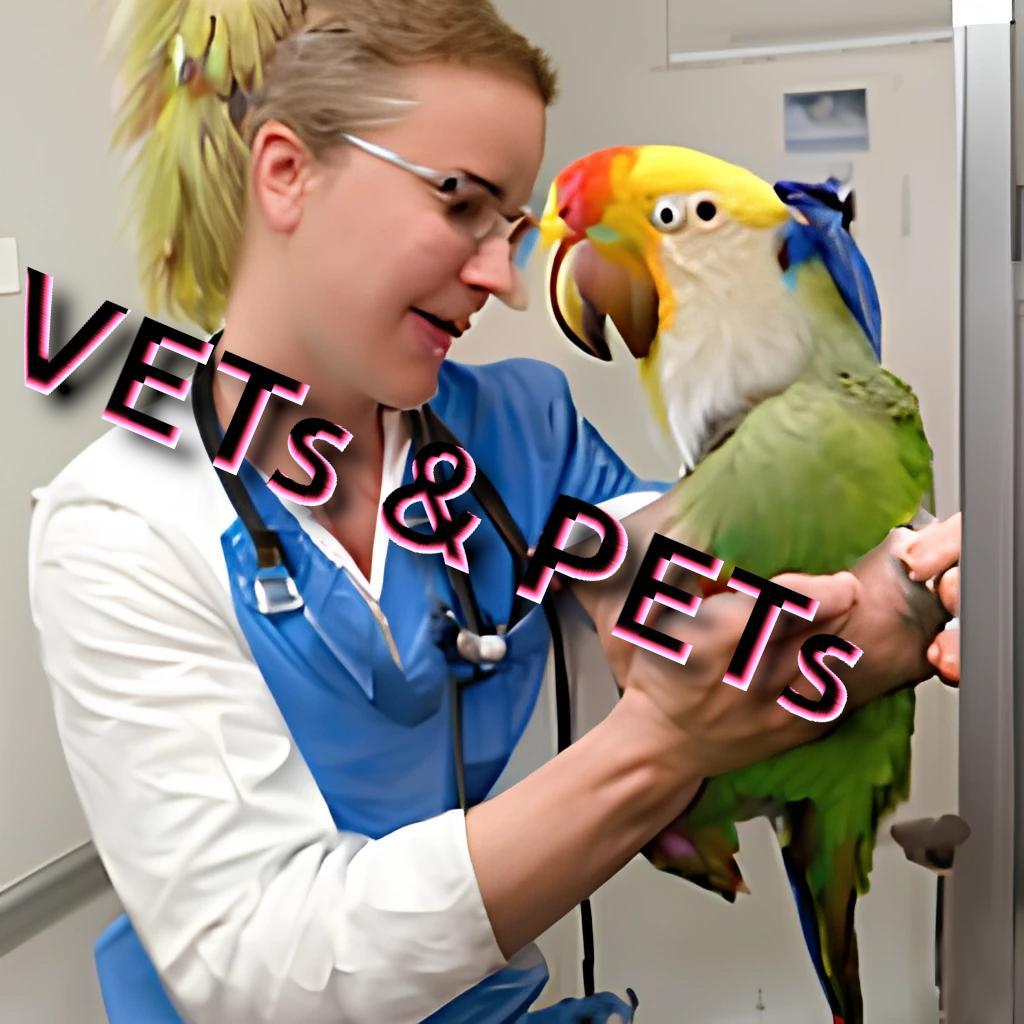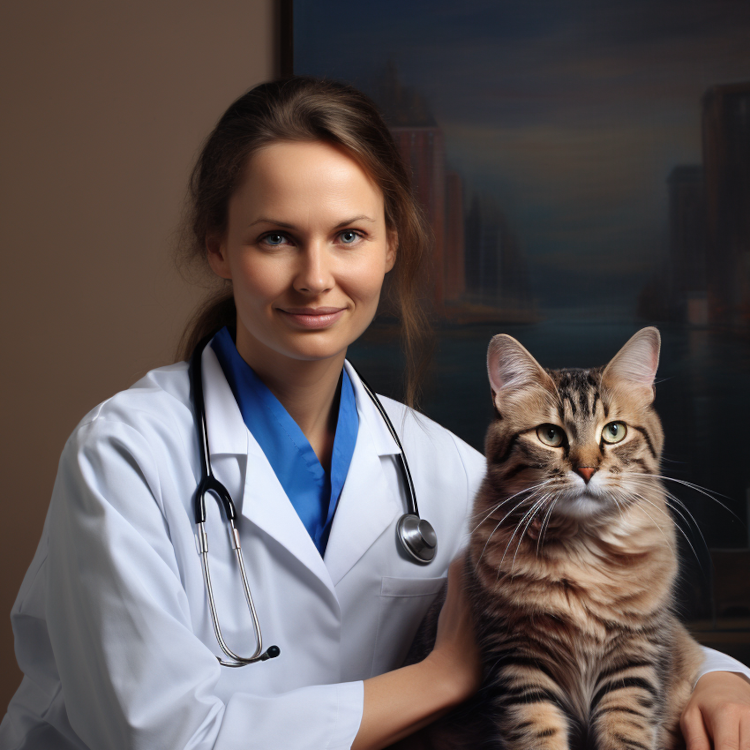


Veterinary clinics serve as lifelines for our beloved pets, providing essential healthcare and ensuring their well-being. Whether it's routine check-ups, emergency care, or specialized treatments, the services offered by veterinary clinics are invaluable. In this comprehensive guide, we'll explore the importance of veterinary care, shed light on the services provided by clinics, and offer practical tips for pet owners to ensure optimal health for their furry companions.
The Importance of Veterinary Care.
Preventive Healthcare:
Regular veterinary check-ups are crucial for preventive healthcare. These visits allow veterinarians to detect and address potential health issues before they escalate, ensuring early intervention and maintaining your pet's overall well-being.
Vaccinations and Disease Prevention:
Veterinary clinics play a key role in administering vaccinations that protect pets from common diseases. By staying up-to-date on vaccinations, pet owners contribute to a healthier pet population and reduce the risk of outbreaks.
Emergency and Critical Care:
Accidents and sudden illnesses can occur at any time. Veterinary clinics provide emergency and critical care services to address urgent medical situations promptly. Immediate attention can make a significant difference in the outcome of veterinary emergencies.
Services Provided by Veterinary Clinics.
Wellness Exams:
Routine wellness exams are the foundation of veterinary care. During these exams, veterinarians assess your pet's overall health, conduct screenings, and discuss preventive measures. Regular check-ups help catch potential issues early and establish a baseline for your pet's health.
Diagnostic Services:
Veterinary clinics offer a range of diagnostic services, including blood tests, imaging, and other diagnostic procedures. These services aid in identifying health issues, confirming diagnoses, and creating tailored treatment plans for each pet.
Surgical Procedures:
Many veterinary clinics provide surgical services, from routine spaying and neutering to more complex surgeries. Skilled veterinarians and well-equipped facilities ensure that surgical procedures are conducted safely and efficiently.
Tips for Pet Owners.
Choose a Reputable Veterinary Clinic:
Research and choose a veterinary clinic with a good reputation. Read reviews, ask for recommendations, and visit the clinic to assess the facilities and meet the staff. A positive and trusting relationship with your veterinarian is essential for your pet's care.
Establish a Regular Care Routine:
Establish a routine for veterinary care, including annual wellness exams, vaccinations, and dental check-ups. Consistency in veterinary visits ensures that your pet receives timely preventive care and maintains optimal health throughout their life.
Be Proactive About Your Pet's Health:
Observe your pet's behavior, appetite, and overall well-being. If you notice any changes or signs of illness, don't hesitate to seek veterinary advice. Early intervention is often key to successful treatment and recovery.
Veterinary clinics are healthcare facilities that provide medical care to animals. These clinics are staffed by licensed veterinarians who are trained to diagnose and treat a wide range of animal health conditions. In addition to veterinary care, many clinics also offer services such as grooming, boarding, and training.
Here are some of the key aspects of veterinary clinics:
Services offered: Veterinary clinics offer a range of services, including routine wellness exams, vaccinations, spaying and neutering, dental care, surgery, diagnostic imaging, and emergency care. Some clinics also offer specialized services, such as acupuncture or rehabilitation therapy.
Staff: Veterinary clinics are staffed by licensed veterinarians, veterinary technicians, and support staff. These professionals work together to provide high-quality care to animals.
Equipment and facilities: Veterinary clinics are equipped with specialized medical equipment, such as X-ray machines, ultrasound machines, and surgical instruments. The facilities are designed to provide a safe and comfortable environment for animals and their owners.
Communication with owners: Veterinarians and staff at veterinary clinics work closely with animal owners to provide information about their pets' health and to develop treatment plans that are tailored to each animal's needs. They may also provide education on topics such as nutrition, behavior, and preventative care.
Emergency care: Many veterinary clinics offer emergency care services, which can be critical in the event of a serious illness or injury. Some clinics have 24-hour emergency care, while others may refer patients to a specialized emergency center.
Costs: The cost of veterinary care can vary depending on the services provided and the location of the clinic. Some clinics may offer payment plans or financing options to help pet owners manage the cost of care.
Veterinarians and pet businesses are those that provide goods or services to pet owners and their animal companions. This can include veterinary clinics, pet supply stores, pet grooming services, and pet boarding facilities, among others. Here is a closer look at each of these types of businesses:
Veterinary clinics: Veterinary clinics are healthcare facilities that provide medical care to animals. They are staffed by licensed veterinarians who diagnose and treat a wide range of animal health conditions. In addition to veterinary care, many clinics also offer services such as grooming, boarding, and training.
Pet supply stores: Pet supply stores sell a variety of products for pets, including food, toys, grooming supplies, and health products. Some stores also offer services such as grooming or training.
Pet grooming services: Pet grooming services provide grooming services for pets, including bathing, haircuts, and nail trimming. They may also offer other services such as dental cleaning or flea and tick treatments.
Pet boarding facilities: Pet boarding facilities provide a place for pets to stay when their owners are away. They offer a range of services, including feeding, exercise, and playtime.
Pet training services: Pet training services provide training to help pets develop good behavior and obedience. They may offer group or individual training sessions and may specialize in specific types of training, such as agility or therapy training.
Pets, like humans, are susceptible to various illnesses and injuries. Here are some of the most common pet illnesses and injuries, and how to avoid them:
Obesity: Obesity is a common problem in pets, and can lead to serious health issues such as heart disease and diabetes. To avoid obesity, make sure your pet is on a healthy diet, and provide plenty of opportunities for exercise and play.
Dental problems: Dental problems such as gum disease and tooth decay can lead to pain, infection, and even organ damage. To avoid dental problems, brush your pet's teeth regularly, and provide dental chews or toys to help keep teeth clean.
Parasites: Parasites such as fleas, ticks, and worms can cause a range of health problems in pets, including skin irritation, anemia, and even death. To avoid parasites, use preventive medication recommended by your veterinarian, and regularly check your pet for signs of infestation.
Allergies: Pets can suffer from allergies just like humans, with symptoms such as itching, sneezing, and ear infections. To avoid allergies, identify and eliminate potential allergens, such as certain foods or environmental triggers.
Poisoning: Pets can accidentally ingest harmful substances such as chemicals or medications, which can lead to serious illness or death. To avoid poisoning, keep harmful substances out of reach, and make sure your pet does not have access to toxic plants or foods.
Fractures and injuries: Pets can sustain fractures and other injuries from accidents or falls. To avoid these injuries, supervise your pet closely, and make sure they have a safe and secure environment to play and explore.
In general, the best way to avoid pet illnesses and injuries is to provide a safe and healthy environment, a balanced diet, regular exercise, and routine veterinary care. Stay informed about your pet's health needs and be proactive in addressing any potential health issues. Regular veterinary checkups can help catch health problems early and prevent them from becoming more serious.
As a general guideline, here are some health and safety rules that you should follow both for yourself and for your pets or animals:
For yourself:
Wash your hands regularly: Regular hand washing is one of the best ways to prevent the spread of germs and bacteria.
Practice good hygiene: Practice good personal hygiene, such as covering your mouth and nose when coughing or sneezing, and avoiding touching your face.
Stay up-to-date on vaccinations: Make sure you are up-to-date on your vaccinations, such as for flu or other contagious diseases.
Stay home when sick: If you are sick, stay home to avoid spreading illness to others.
Wear protective gear: If you work with hazardous materials or in dangerous environments, wear appropriate protective gear such as gloves, goggles, or masks.
For your pets or animals:
Provide proper nutrition: Feed your pets a balanced and healthy diet to ensure they receive the proper nutrients they need to stay healthy.
Provide fresh water: Make sure your pets have access to fresh, clean water at all times.
Keep up-to-date on vaccinations: Regular vaccinations can help protect your pets from common diseases and illnesses.
Regular exercise: Regular exercise is important for maintaining your pets' physical and mental health.
Proper hygiene: Regular grooming and cleaning can help prevent the spread of bacteria and parasites, as well as keep your pets looking and feeling their best.
Safe environment: Keep your pets in a safe and secure environment, away from hazardous materials or potential dangers such as busy roads or bodies of water.
Regular veterinary care: Regular checkups with a veterinarian can help catch health issues early and prevent them from becoming more serious.
Veterinary clinics are pillars of support for the health and well-being of our pets. By prioritizing preventive care, choosing reputable clinics, and being proactive about your pet's health, you contribute to a long and happy life for your furry companion. Remember, the partnership between pet owners and veterinary professionals is a collaborative effort to ensure that our pets receive the best possible care and live their lives to the fullest.
Respectfully,

We use cookies
We use cookies and other tracking technologies to improve your browsing experience on our website, to show you personalized content and targeted ads, to analyze our website traffic, and to understand where our visitors are coming from. Privacy Policy.